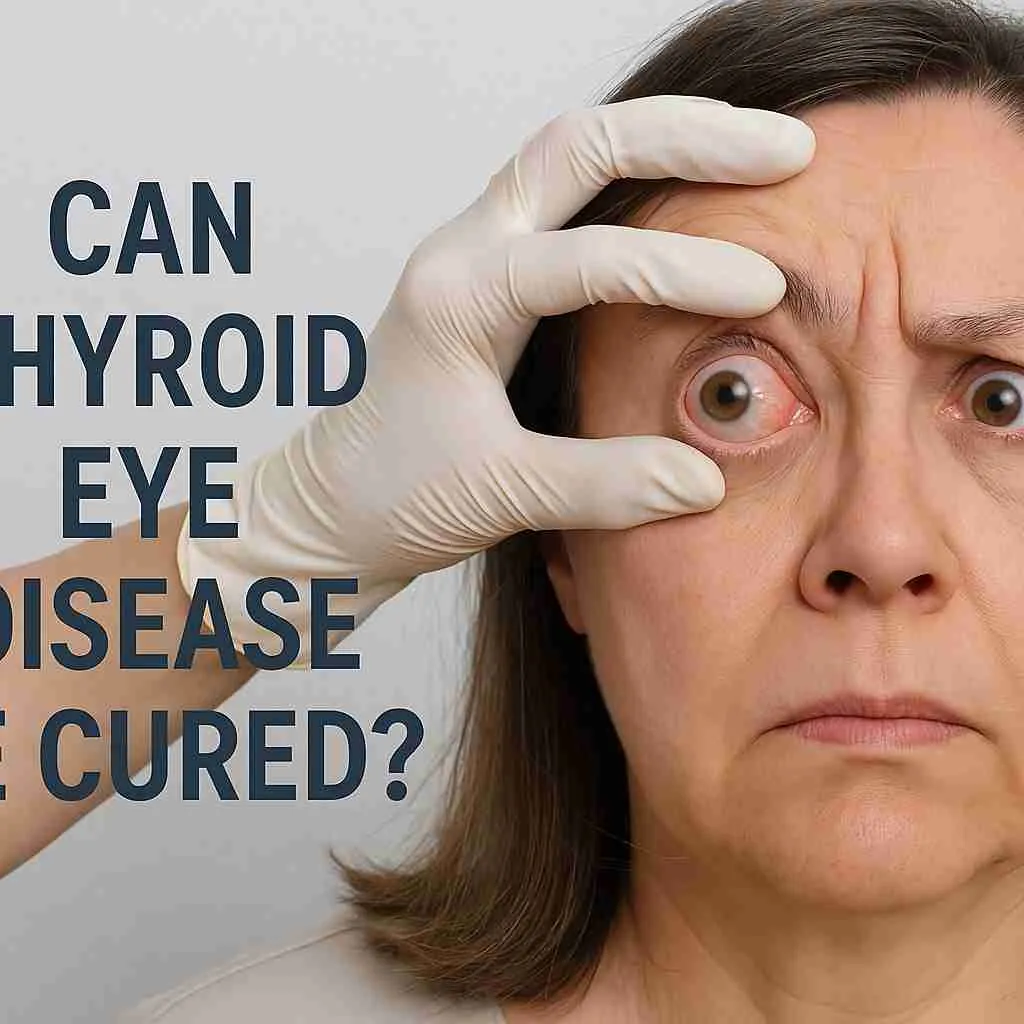Have you or someone close been diagnosed with Graves’ disease? You might be wondering how this affects your future. Will it shorten your life? Will your body ever feel normal again? These questions aren’t just common, they’re necessary.
Graves’ disease can feel overwhelming at first. It changes how your body works, how your heart beats, and how your energy feels. But the real question remains: how long can you live with Graves’ disease?
Your outlook depends on treatment, timing, and overall health. Graves’ disease is not usually fatal. But without proper management, it can lead to serious problems. Fortunately, many people live long, healthy lives with this condition, especially when treated early and consistently.
This guide will help you understand what to expect, how to manage it, and how to protect both your life span and your quality of life.
Quick Facts: Graves’ Disease & Life Expectancy
| Factor | Treated Graves’ Disease | Untreated Graves’ Disease |
|---|---|---|
| Life expectancy | Normal | Shortened (due to heart or bone complications) |
| Heart health | Manageable | High risk of arrhythmia or failure |
| Bone health | Preserved | Risk of osteoporosis |
| Mental clarity | Improves with care | Anxiety, restlessness common |
| Thyroid storm | Very rare | Potentially life-threatening |
What Is Graves’ Disease and How Does It Affect Your Body?
Graves’ disease is an autoimmune condition. Your immune system mistakenly attacks the thyroid, causing it to release too much hormone. This hormone, known as thyroxine, controls many parts of your body, like heart rate, temperature, and metabolism.
Too much of it, and things go off track. Your heart might race. You may lose weight fast, feel hot all the time, or get anxious for no clear reason. These are just some of the effects.
Here’s a simple way to look at it:
-
Normal thyroid = controlled metabolism
-
Overactive thyroid (Graves’ disease) = metabolism in overdrive
The disease mostly affects women under 40, though anyone can get it. If untreated, it raises the risk of heart issues, weak bones, and a dangerous condition called thyroid storm.
So, how long can you live with Graves’ disease? With treatment, people live just as long as anyone else. But without it, things get risky.
Symptoms and Causes: What Triggers Graves’ Disease?
Symptoms of Graves’ disease come slowly for some, quickly for others. You might not even realize it’s your thyroid causing the trouble.
Common signs include:
-
Fast heartbeat or irregular rhythm
-
Unexplained Weight loss
-
Sweating a lot or feeling too hot
-
Anxiety or restlessness
-
Hair thinning or falling out
-
Shortness of breath
-
Fewer or lighter periods
-
Fatigue that doesn’t go away
Some people also develop Graves’ eye disease. This causes bulging eyes, blurry vision, and light sensitivity. In rare cases, the disease affects the skin or fingers, too.
Causes aren't fully understood. But we know this:
-
It starts in the immune system
-
It runs in families
-
It can be triggered by stress, infection, or childbirth
One study showed that genetics contributes to about 79% of the risk, with the rest tied to lifestyle factors like smoking, vitamin deficiencies, and chronic stress.
How Is It Diagnosed and What Are the Treatment Options?
Getting a diagnosis usually starts with blood tests. Doctors check your thyroid hormone levels and look for specific antibodies. They may also run a thyroid scan or use an ultrasound to check blood flow and size.
Once diagnosed, treatment begins right away.
There are a few options:
-
Beta-blockers – Help manage heart rate and tremors.
-
Antithyroid drugs – Stop the gland from making too much hormone.
-
Radioactive iodine therapy – Destroys overactive thyroid tissue.
-
Surgery – Removes part or all of the thyroid.
After some of these treatments, especially surgery or iodine, the thyroid slows down too much. That leads to hypothyroidism. But this is easier to manage with daily hormone pills.
Graves’ Disease Prognosis: What to Expect Long Term
Without proper care, complications can shorten life. Graves’ disease raises the risk of:
-
Atrial fibrillation – An irregular heartbeat that may cause a stroke
-
Heart failure – If the heart is overworked
-
Osteoporosis – Due to long-term hormone imbalance
-
Thyroid storm – A medical emergency with high fever, rapid heart rate, and possible death
A 2017 study from the Rotterdam cohort found that people over 50 with high-normal thyroid levels lived up to 3.5 years less, especially those without proper control of their hormone levels. That’s why even borderline cases need watching.
The risk increases for stroke, heart disease, and severe bone loss. But most of that can be avoided with consistent treatment.
What Is the Life Expectancy With Graves' Disease?
If diagnosed early and managed well, life expectancy remains normal. Treatment controls hormone levels, protects the heart, and prevents serious complications. Many patients lead full lives, raise families, work regular jobs, and stay active.
Without medical care, the stress on the heart and bones takes a toll.
For women of childbearing age, untreated Graves' disease can lead to pregnancy complications, including miscarriage and preeclampsia.
With care, though, even these risks drop. Most people never face life-threatening events. They simply live with routine lab checks and regular medication.
Graves’ Disease Treatment Outcomes: What to Expect
Some people go into remission with antithyroid drugs. This means their hormone levels stay normal for years without meds. Others require lifelong care, especially if their thyroid is removed or destroyed.
Success rates:
-
Antithyroid drugs – 30–50% remission
-
Radioiodine therapy – 90% effective, but often leads to hypothyroidism
-
Surgery – Removes the problem but requires daily hormone replacement
So again, can Graves' disease be cured? Not always. But it can be controlled. And that’s what protects your life and health long term.
Living With Graves’ Disease: Tips for a Better Life
Here are some techniques and habits that help manage the condition:
-
Track symptoms daily – Note changes in weight, heart rate, energy
-
Follow up regularly – Blood tests every 3–6 months
-
Manage stress – Try yoga, walks, or short breathing exercises
-
Avoid smoking – It makes eye problems worse
-
Take medication on time – Skipping pills throws your body off
-
Eat foods rich in calcium and vitamin D – To protect bones
-
Ask your doctor about selenium supplements – May help thyroid health
Your quality of life improves when the condition is treated like part of your routine, not an emergency.
Final Thoughts: Graves’ Disease Doesn’t Define You
So, hw long can you live with Graves' disease? Long enough to see your kids grow up, enjoy retirement, and live a full life, if you treat it and don’t ignore the signs. It's not about fear.
It's about focus. With the right plan, Graves' disease becomes one more thing you manage, not something that manages you.
Related: 19 Early Signs of Thyroid Problems: Don't Ignore These
Frequently Asked Questions
Can you live a normal life with Graves' disease?
Yes. Many people live full, active lives with the condition. The key is sticking to treatment, following up with your doctor, and paying attention to new symptoms.
Is Graves' disease fatal if untreated?
It can be. If left untreated, it increases the risk of heart problems, bone loss, and thyroid storm, all of which can become deadly. Treatment prevents most of these risks.
How does Graves' disease affect your lifespan?
With treatment, your lifespan should remain normal. But untreated hormone imbalance can slowly damage the heart and bones, shortening life by several years.
What is the prognosis of Graves' disease with medication?
Good. Most people see improvements in symptoms within weeks. With ongoing care, the condition becomes manageable and rarely leads to major health problems.
How long can you live with Graves' disease if diagnosed late?
Even with late diagnosis, treatment can stabilize hormone levels and improve quality of life. But the longer the thyroid is overactive, the higher the chance of lasting damage.
Reviewed by






